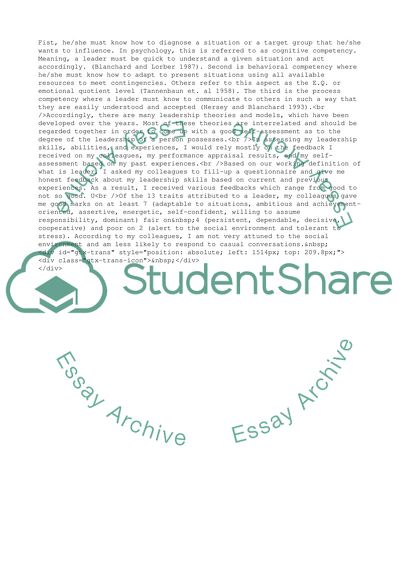Cite this document
(Assessing Leadership Skills, Abilities and Experiences Assignment, n.d.)
Assessing Leadership Skills, Abilities and Experiences Assignment. https://studentshare.org/management/1704227-the-developing-leader
Assessing Leadership Skills, Abilities and Experiences Assignment. https://studentshare.org/management/1704227-the-developing-leader
(Assessing Leadership Skills, Abilities and Experiences Assignment)
Assessing Leadership Skills, Abilities and Experiences Assignment. https://studentshare.org/management/1704227-the-developing-leader.
Assessing Leadership Skills, Abilities and Experiences Assignment. https://studentshare.org/management/1704227-the-developing-leader.
“Assessing Leadership Skills, Abilities and Experiences Assignment”. https://studentshare.org/management/1704227-the-developing-leader.


